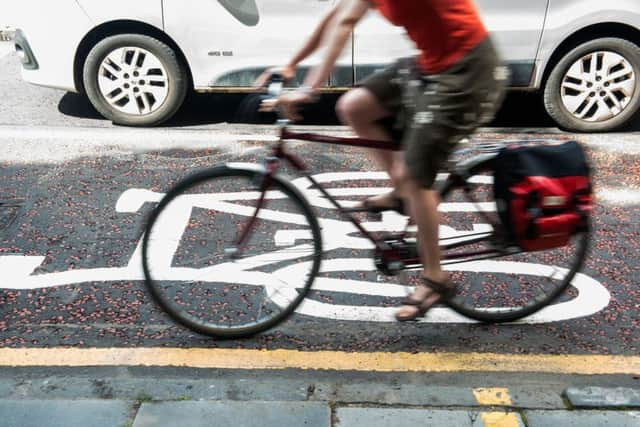Jodi Gordon: Cycling towards fairer ways to deal with traffic accidents


Back in 2016, the headlines reporting that a taxi driver was fined ‘just’ £400 for causing the death of a cyclist understandably caused an immediate outcry.
Such a meagre fine and the judge’s ‘surprise’ that a case was ever brought against the taxi driver are hardly a deterrent for the next careless driver, especially when we attach so little value to a human life. It wasn’t the first such case, nor was it the last.
Advertisement
Hide AdAdvertisement
Hide AdBut in these situations, we have to take a step back. There is another perspective. This was carelessness. A human error. And do we want to lock people away for such things?


Criminal law exists to protect the public and if we look at the act of carelessness rather than the consequences of that carelessness, the cabbie is not a danger to wider society. The judge handed out a sentence that matched the ‘crime’ and according to what was in her power to give.
Civil law, on the other hand, gives us the opportunity to compensate those bereaved or injured for their loss and provide an appropriate level of justice. In this case, the cyclist’s family would have been able to recover damages in civil law as the cabbie admitted fault and by his negligent act caused a man’s death. While the question, ‘what price a life?’ can never be adequately answered, the process of civil law does provide some financial security and justice for the loved ones left behind.
Both the criminal and civil law, therefore, have extremely important and complementary roles to play, when applied in the appropriate and measured way to road traffic cases. But there can be a tension between the two. Instead of working together, there is often a disconnect and victims of road traffic collisions can also become victims of ingrained and intransigent processes, which is neither appropriate nor humane.
The fact that the case of the cab driver was brought before the criminal courts in the first place was a positive step. Many drivers who collide with and injure cyclists are neither charged nor are their cases even brought to trial. Increasingly, we also see drivers originally charged with dangerous driving, arrive in court to accept charges of careless driving.
Media attention has highlighted the vulnerability of cyclists on our roads and there is a need to have a robust system of criminal prosecution that is capable of dealing appropriately with both careless drivers and dangerous drivers. Society needs to be reminded that motor vehicles are potential killing machines.
The role of civil law is to compensate the bereaved or the injured. Civil law will protect those who are wronged by a negligent act. However, at present, that process cannot begin before a criminal process has completed its course. As a result, those bereaved or injured can wait months and years for information to be released from the Crown Office and Procurator Fiscal Service.
In that intervening time, appeals by the bereaved families to “know what happened” are denied in order to preserve the rights of the accused for a fair trial. We have cases of people suffering traumatic injuries, whose situation is all but ignored by the Procurator Fiscal, and they are left to read about any trial and sentencing of the driver responsible in the media. This is all long before they receive any financial recompense for lost income, medical expenses or rehabilitation. More needs to be done to ensure swift access to justice to alleviate suffering and financial hardship.
Advertisement
Hide AdAdvertisement
Hide AdI have some critics of the Road Share campaign to introduce presumed liability into civil law, but for me this is exactly what’s needed to ensure we deal with road traffic collisions in a mature and compassionate way for everyone concerned. Vulnerable road users will be compensated quickly and fairly and and those in charge of motorised vehicles will understand their responsibilities and take greater care for those vulnerable to serious injury.
Jodi Gordon is an associate solicitor at Cycle Law Scotland and a supporter of the Road Share campaign